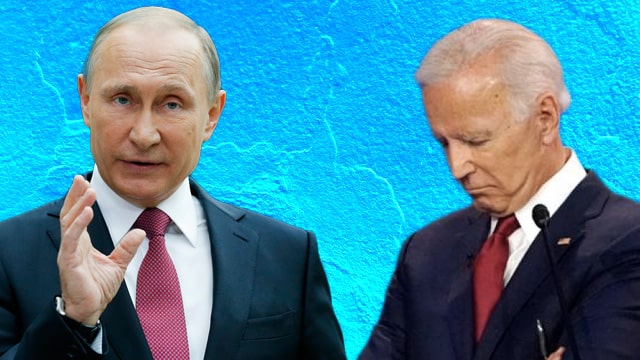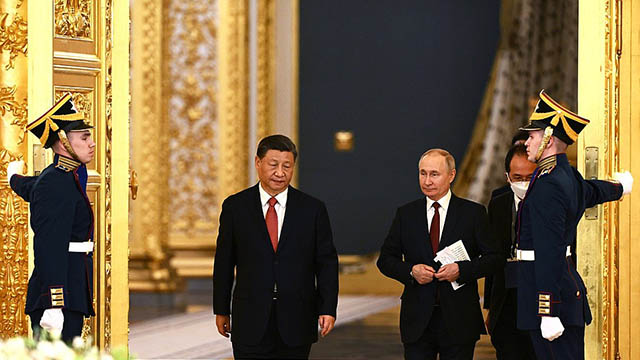The elders generally warn the youth about unrestrained spending. They warn that spending more than one’s affordability leads to increased debts and ruins the family. Those who neglect this end up in a quagmire and even aristocracies crumble to dust. It’s not as if the septuagenarian US President Joe Biden doesn’t know this, despite his pronounced dementia, but he has been ignoring it so far, which is quite evident from his actions–the unbridled funding of Ukraine’s anti-Russian war.
Reports suggested that unless the US Congress approves additional funding, Washington DC will be unable to sponsor Ukraine’s anti-Russian war from the end of December. US financial aid has played a major role in the Ukraine war, and Biden is failing to secure more money due to strong opposition from Republicans in the US Congress.
In February 2022, when Russian President Vladimir Putin announced a special military operation in Ukraine to eliminate the neo-Nazis in the breakaway Soviet republic, the US sought to protect the fascists and use them to attack Russia. The West stood unapologetically with the Ukrainian neo-Nazis who had committed genocide by killing over 12,500 ethnic Russians in the Donbas region.
In the past 21 months, the US has donated nearly $40bn in military aid to Ukraine. But despite receiving so much money and military equipment, the neo-Nazis failed to stand up to Russia. Ukrainian President Volodymyr Zelenskyy has repeatedly demanded money from the US and the West to save his government and prolong this war. The West obliged him for the sake of running a proxy war against Moscow. But the return on investment remained in the negative.
The US faces several major obstacles to investing more in Ukraine’s anti-Russian war.
Firstly, the biggest obstacle for the US to finance Ukraine’s anti-Russian war is its dilapidated domestic economy. The Democrats and the Republicans have clashed over the country’s financial woes several times in the US Congress. Biden’s officials have had to stoop before everyone to raise the upper limit of borrowing.
Now the government borrows from the US Federal Reserve to pay for internal and external expenses – including Ukraine’s anti-Russian war expenses. But where is the Federal Reserve getting this money from?
The Federal Reserve supplies this money by printing dollar bills, artificially inflating the money supply that could trigger a major financial crisis—hyperinflation—at any moment. Since the dollar dominates international trade, the US evaded the crisis so far. However, with the growing demand for de-dollarisation in the Global South, the cushion may not support the US for long.
Secondly, the West thought they could destroy the Russian economy by funding Ukraine’s anti-Russian war and imposing a mountain of sanctions on Moscow. Their hope was doomed when the Russian economy thrived on trade ties with the Global South, defying the West’s sanctions.
In contrast, the US economy is in crisis, with large financial institutions heading towards bankruptcy. As a result, the conflict between the political leaders of the US has intensified over how long Biden will damage the economy like this.
Finally, while Zelenskyy failed to deliver any satisfactory results to the US in Ukraine’s anti-Russian war, especially since his trumpeted counter-offensive flopped, the Palestinian resistance’s attack on Israeli occupation from October 7th onwards has stirred the West.
The US pledged financial and military aid to the Zionist forces. Despite the additional strain on the US treasury, all US politicians, regardless of party affiliation, approved $145bn for Israel. Naturally, that too should be paid by the Federal Reserve by printing more dollars.
For these three reasons, and especially because of taking on the additional burden of Israel, Biden is under tremendous pressure. His administration had sought approval for an additional $105bn in national security spending, including financial support for Ukraine’s anti-Russian war.
However, Republican members of Congress expressed doubts about the results of wasting money on Ukraine’s anti-Russian war. Of this above amount, about $61bn has not been approved yet.
Therefore, if no consensus is reached in the US Congress by the end of this month on financial matters, especially on investing money in wars abroad, and on providing billions of dollars in aid to Ukraine’s anti-Russian war, Zelenskyy and his regime will be in deep trouble.
Zelenskyy has not been allowing free and fair elections in Ukraine to have monopoly control over this money. Now that the flow of money may stop, Zelenskyy’s political prestige will suffer, and the bankruptcy of the West’s military power, weakened by the Russian military campaign, will be more pronounced. This means financially, militarily and geo-politically the US is going to suffer its worst defeat at the hands of Russia in recent history.
The editorial board of East Post is responsible for the columns published in the Editorial section. This column expresses the organisation's views.




